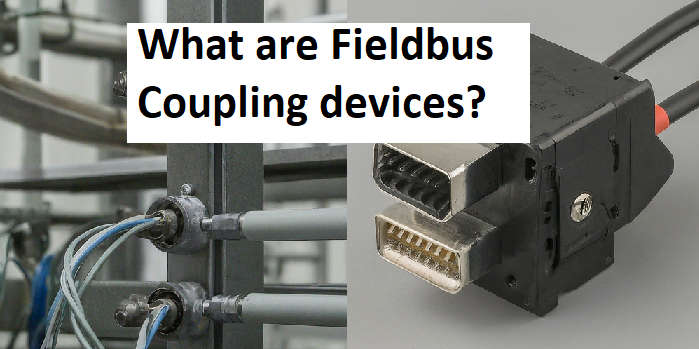What are Fieldbus Coupling devices? – Learn about fieldbus coupling devices (FCDs), their functions, types, and benefits. Discover how FCDs bridge the gap between field devices and control systems, enabling efficient and reliable industrial automation.
Fieldbus coupling devices (FCDs) serve as the crucial link between field devices (such as sensors, actuators, and valves) and industrial control systems. These devices enable seamless communication and data exchange between the field level and the control level, facilitating efficient and reliable automation processes.
Understanding Fieldbus Coupling Devices
FCDs essentially act as translators, converting the communication protocols used by field devices into a format that is compatible with the control system’s communication protocol. This enables integration and interoperability between different devices and systems, regardless of their manufacturers or technologies.
Key Functions of Fieldbus Coupling Devices
- Protocol conversion: FCDs convert the field device’s protocol (e.g., HART, FOUNDATION Fieldbus, Profibus) into the control system’s protocol (e.g., Ethernet, Modbus TCP/IP).
- Signal conditioning: FCDs may also perform signal conditioning tasks, such as scaling, linearization, and filtering, to ensure accurate data transmission.
- Power supply: In some cases, FCDs can provide power to field devices, eliminating the need for separate power supplies.
- Device management: FCDs can be used to manage and configure field devices, simplifying maintenance and troubleshooting.
Types of Fieldbus Coupling Devices
There are several types of FCDs available, each with its own specific characteristics and applications:
- Gateways: Gateways connect field devices to a control system network, such as Ethernet or Modbus TCP/IP. They typically handle protocol conversion and signal conditioning.
- Couplers: Couplers are designed to connect field devices directly to a control system, without the need for a separate gateway. They are often used in smaller-scale applications.
- Data concentrators: Data concentrators collect data from multiple field devices and transmit it to a central control system. They are useful for reducing the number of communication cables and simplifying network topology.
Benefits of Using Fieldbus Coupling Devices
- Improved efficiency: FCDs can help to optimize industrial processes by enabling real-time data exchange and control.
- Enhanced reliability: FCDs can improve system reliability by providing redundancy and fault tolerance.
- Reduced costs: FCDs can help to reduce costs by simplifying system design and maintenance.
- Increased flexibility: FCDs can enable the integration of different field devices and control systems, providing greater flexibility and adaptability.
Applications of Fieldbus Coupling Devices
FCDs are widely used in various industries, including:
- Manufacturing: Controlling production lines, assembly processes, and quality control.
- Process control: Monitoring and controlling chemical processes, power plants, and water treatment facilities.
- Building automation: Managing HVAC systems, lighting, and security systems.
- Energy management: Optimizing energy consumption and distribution.
Choosing the Right Fieldbus Coupling Device
When selecting a fieldbus coupling device, it is important to consider the following factors:
- Compatibility: Ensure that the FCD is compatible with both the field devices and the control system.
- Functionality: Determine the specific features and capabilities required for the application.
- Performance: Evaluate the FCD’s performance in terms of speed, accuracy, and reliability.
- Cost: Consider the initial and ongoing costs associated with the FCD.
By carefully selecting the appropriate fieldbus coupling device, you can improve the efficiency, reliability, and flexibility of your industrial automation system.
